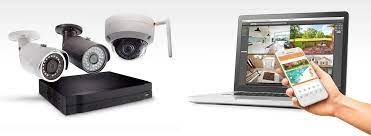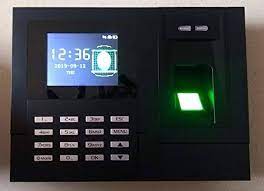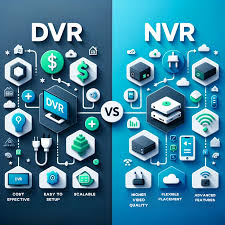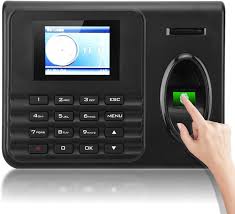In today’s fast-paced world, security is a top priority for individuals and businesses alike. One of the most popular and effective tools for enhancing security is the Closed Circuit Television (CCTV) security camera system. CCTV systems have become an essential part of modern surveillance and monitoring solutions, providing a range of benefits and functionalities that help deter crime, protect property, and enhance overall safety.
So, what exactly is a CCTV security camera system? Simply put, it is a system of cameras connected to a centralized monitoring station or recording device. These cameras capture live footage of specific areas and transmit it to the monitoring station where it can be viewed in real-time or recorded for future reference. CCTV systems come in various types, including analog, digital, wired, and wireless options, each offering different features to suit different security needs.
One of the key advantages of CCTV security camera systems is their ability to act as a deterrent to potential criminals. The presence of visible cameras can discourage unauthorized activities and intrusions on the premises. In the event of a crime or suspicious activity, CCTV footage serves as crucial evidence for identifying perpetrators and aiding in investigations.
Moreover, CCTV systems provide round-the-clock surveillance, allowing users to monitor their property remotely from anywhere with an internet connection. This remote access feature enables real-time monitoring of activities on-site and quick response to any security threats or emergencies.
Another benefit of CCTV security camera systems is their scalability and flexibility. Users can easily expand their surveillance coverage by adding more cameras or upgrading existing ones to meet changing security needs. Additionally, advanced features such as motion detection, night vision, facial recognition, and mobile alerts enhance the effectiveness and efficiency of CCTV systems in detecting and responding to potential threats.
Overall, investing in a CCTV security camera system is a proactive measure towards ensuring safety and protection for homes, businesses, public spaces, and critical infrastructure. With its advanced technology capabilities and versatile applications, CCTV systems continue to play a vital role in safeguarding assets and maintaining peace of mind in an increasingly uncertain world.
7 Key Advantages of CCTV Security Camera Systems: Deterrence, Constant Surveillance, and Enhanced Safety
- Acts as a deterrent to potential criminals
- Provides round-the-clock surveillance
- Allows remote monitoring from anywhere with internet access
- Offers scalability and flexibility for expanding coverage
- Includes advanced features like motion detection and night vision
- Provides crucial evidence for investigations
- Enhances overall safety and security of premises
Four Drawbacks of CCTV Security Camera Systems: Privacy, Cost, Coverage, and Hacking Risks
Acts as a deterrent to potential criminals
The presence of CCTV security camera systems acts as a powerful deterrent to potential criminals, significantly reducing the likelihood of unauthorized activities and intrusions on the premises. The visible presence of cameras serves as a warning to would-be offenders, dissuading them from engaging in criminal behavior and creating a sense of accountability. This proactive measure helps enhance security levels and instills a sense of safety and protection for individuals, properties, and assets under surveillance.
Provides round-the-clock surveillance
Round-the-clock surveillance is a significant advantage of CCTV security camera systems. With the ability to monitor premises 24/7, these systems offer continuous protection against potential security threats and unauthorized activities. The constant surveillance ensures that any unusual or suspicious events can be promptly detected and addressed, enhancing overall safety and peace of mind for property owners and occupants. Additionally, the real-time monitoring capability allows for quick response to emergencies, enabling timely intervention and mitigation of risks.
Allows remote monitoring from anywhere with internet access
The ability of CCTV security camera systems to allow remote monitoring from anywhere with internet access is a significant advantage that enhances convenience and peace of mind for users. Whether you are at home, in the office, or traveling abroad, you can easily check live footage of your property or premises using a smartphone, tablet, or computer. This feature provides real-time visibility and control over security situations, enabling prompt responses to any suspicious activities or emergencies. The convenience of remote monitoring ensures that users stay connected and informed about their surroundings at all times, contributing to a heightened sense of security and reassurance.
Offers scalability and flexibility for expanding coverage
CCTV security camera systems offer scalability and flexibility, allowing users to easily expand their surveillance coverage as needed. Whether it’s adding more cameras to cover additional areas or upgrading existing ones with advanced features, CCTV systems provide the flexibility to adapt to changing security requirements. This scalability ensures that users can customize their surveillance setup to suit specific needs, whether it’s for a small residential property or a large commercial facility. With the ability to expand coverage seamlessly, CCTV systems offer a versatile solution for enhancing security measures effectively.
Includes advanced features like motion detection and night vision
The inclusion of advanced features such as motion detection and night vision sets CCTV security camera systems apart in terms of enhancing surveillance capabilities. Motion detection technology enables cameras to automatically start recording when movement is detected, providing a proactive approach to monitoring and alerting users to potential threats in real-time. Additionally, the night vision feature allows cameras to capture clear footage even in low-light or dark conditions, ensuring continuous surveillance and visibility around the clock. These advanced functionalities not only improve the overall effectiveness of CCTV systems but also contribute to increased security and peace of mind for users.
Provides crucial evidence for investigations
The provision of crucial evidence for investigations is a significant advantage of CCTV security camera systems. In the unfortunate event of a crime or security breach, the recorded footage from CCTV cameras serves as invaluable evidence for law enforcement authorities and investigative teams. This evidence can help in identifying suspects, reconstructing events, and ultimately bringing perpetrators to justice. The clear and detailed footage captured by CCTV cameras plays a pivotal role in enhancing the effectiveness and efficiency of investigations, ensuring accountability and promoting a safer environment for everyone.
Enhances overall safety and security of premises
The CCTV security camera system significantly enhances the overall safety and security of premises by providing continuous surveillance and monitoring capabilities. With strategically placed cameras capturing live footage of key areas, the system acts as a vigilant eye, deterring potential threats and unauthorized activities. This proactive approach to security not only helps in preventing crimes but also ensures a rapid response in case of emergencies, thereby creating a secure environment for occupants and assets within the premises.
Privacy concerns
One significant con of CCTV security camera systems is the privacy concerns they raise. Improper placement and usage of CCTV cameras can lead to the invasion of individuals’ privacy, sparking ethical dilemmas surrounding surveillance practices and data protection. The constant monitoring and recording of public or private spaces without consent can infringe upon personal freedoms and raise questions about the extent of surveillance permissible in a society that values privacy rights.
Cost of installation and maintenance
One significant drawback of CCTV security camera systems is the high cost associated with their installation and maintenance. Setting up a comprehensive CCTV system can be a substantial financial investment, as it involves expenses for initial installation, purchasing quality equipment, and ongoing maintenance and servicing. The upfront costs of cameras, recording devices, monitors, cabling, and other necessary components can add up quickly, making it a significant financial commitment for individuals and businesses. Additionally, regular maintenance and upgrades to ensure optimal performance of the system can incur additional expenses over time. The cost factor can be a limiting factor for some organizations or individuals looking to implement a robust security solution within budget constraints.
Limited coverage
One significant drawback of CCTV security camera systems is their limited coverage, which can result in blind spots or gaps in surveillance. Depending on the number and placement of cameras, certain areas within a property may not be adequately monitored, leaving potential vulnerabilities that could be exploited by intruders or criminals. These blind spots compromise the overall effectiveness of the CCTV system and create opportunities for unauthorized activities to go undetected, ultimately undermining the system’s ability to provide comprehensive security coverage.
Vulnerability to hacking
One significant drawback of CCTV security camera systems is their vulnerability to hacking. Just like any other connected device, CCTV systems are at risk of cyber threats and unauthorized access by malicious individuals. Hackers may exploit security loopholes or weaknesses in the system to gain control over the cameras, compromising the integrity and confidentiality of recorded footage. This poses a serious threat to privacy and security, as unauthorized access to CCTV cameras can lead to misuse of sensitive information or surveillance footage for malicious purposes.




